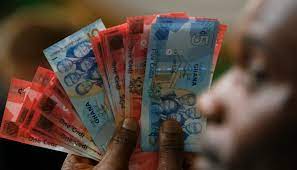Ghanaian Government Raises Minimum Wage to Boost Economic Well-being
- WORLD DAILY

- Nov 16, 2023
- 2 min read

In a significant move aimed at improving the financial conditions of the nation's workforce, the Ghanaian government has announced a substantial increase in the minimum wage, raising it from GHS 14.88 to GHS 18.15. This decision comes as part of the government's commitment to addressing economic inequalities and ensuring that workers receive a fair and livable wage. The adjustment takes into account the rising cost of living and aims to provide employees with better financial stability, fostering an environment of economic growth and improved standards of living.
This increase in the minimum wage is expected to have a positive ripple effect across various sectors of the economy. With a higher baseline income, workers will have increased purchasing power, contributing to a potential boost in consumer spending. This, in turn, can stimulate demand for goods and services, providing a much-needed injection into the economy. Additionally, the move is likely to enhance job satisfaction and motivation among workers, leading to increased productivity and efficiency across industries. As employees experience an improvement in their financial situations, they may also have a greater ability to invest in education and skill development, further contributing to the country's overall human capital development.
While this adjustment signifies a step in the right direction, it is essential for the government to monitor the economic impact of the increased minimum wage closely. Balancing the benefits to workers with the potential challenges faced by businesses, especially smaller enterprises, will be crucial. Striking a harmonious equilibrium that supports both employees and employers will be vital for the sustained success of this policy. As Ghana continues to navigate its economic landscape, this move represents a commitment to creating a fair and prosperous society for all its citizens.









Comments